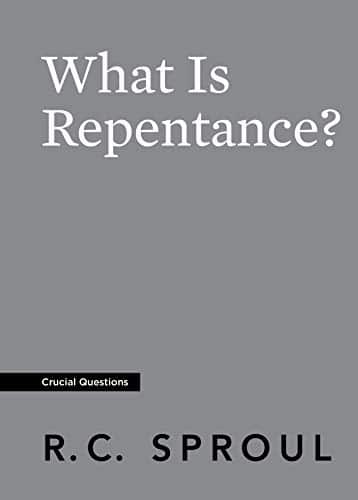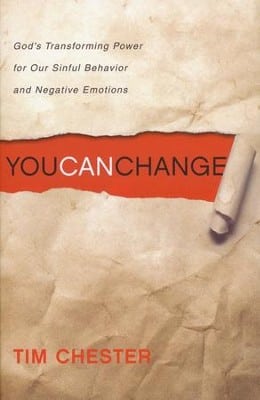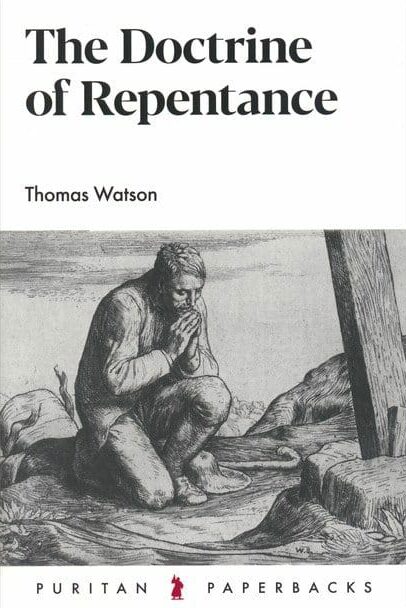“What do you think? If a man owns a hundred sheep, and one of them wanders away, will he not leave the ninety-nine on the hills and go to look for the one that wandered off? And if he finds it, truly I tell you, he is happier about that one sheep than about the ninety-nine that did not wander off.”
(Matthew 18:12-13 NIV)
Repentance is an increasingly familiar experience for followers of Jesus.
It’s a change of mind brought about by God’s Spirit. He convicts us of our rebellion against God in a certain area of our lives, and we see our sin as it is—an offense against God. He then points us to Jesus Christ, who has fully atoned for all our sin, and gives us faith that Jesus wants to extend to us forgiveness.
This change in our thinking always produces a change in behavior. God’s Spirit at work in us in this way will move us to forsake our sin, seek Jesus for forgiveness, and live more obediently to him.
Repentance is turning around, we might say, and will always include decisive action. In biblical terms, however, repentance is God’s loving rescue. We have wandered from the truth like sheep wandering from their Shepherd and he has brought us back.
The first time you ever repent is when you turn from a life lived in rebellion towards God and you come to the truth that Jesus is Lord and Savior, and that he is the only way to be forgiven of your sin and reconciled to God (1 Timothy 2:5; Acts 4:12). A Christian first experiences repentance when they are lost in the pastures of the world, chasing sin, and in rebellion against the Good Shepherd, and are then rescued—brought in Jesus’ arms to his pasture to belong to him (John 10).
But the Christian life is full of repentance. One hymnwriter summarizes the state of our hearts like this: “Prone to wander, Lord I feel it, prone to leave the God I love.” Even after we belong to the Good Shepherd, we still choose to wander away from him at times, in one way or another.
You may wonder, what does repentance look like?
First, you will hear the Shepherd’s voice calling out to you (John 10:27). Through the Words of Scripture, or a friend, or your conscience, you will hear him call, “Repent! Come back” (Ezekiel 14:6; Hosea 14:1; Matthew 3:2; Acts 3:19). You will hear him warn you of danger. You will feel the sharp sting of conviction (John 16:7-8)
And then you will come to your senses (Psalm 73:21-22). You will see clearly that you are on a lesser hill than where the Shepherd would have you, you will realize how far away you are from him who you love, and how foolish you were to go your own way, and how wicked you were to break his law, and this will all grieve your heart (2 Corinthians 7:9).
Your stubborn will may overcome your senses and you may wander further for fear he will not receive you back, for persistent distrust that where he shall lead is better than where you are, or for sinful curiosity to keep going where he has forbidden.
But the Shepherd will keep calling and keep coming after you—he will come closer until he overtakes you.
There will come a point where he does one of two things—he may put his crook around your neck and yank in a painful way to help your will resign to returning to him (Revelation 3:19).
Or he may take out a rod and, to your surprise, beat the predator you could not see that was about to devour you (Romans 2:4). His kindness will woo your heart back to him in such a way that there’s nowhere you would rather be than with him in his pasture (Psalm 73:23-26).
The way home on the road of repentance is always sweet. The Shepherd does not scold; he loves to rescue and restore (Matthew 18:13). It is his life’s work (John 10:14-15).
In a beautiful poem, the Shepherd-King David told us that the experience of repentance is a great comfort to the Christian. “Your rod and your staff, they comfort me,” he wrote (Psalm 23:4). Is that kind of language surprising to you?
Often, we hang our heads at our own sin, we feel ashamed of having wandered at all, convince ourselves that our sin is impossible to forgive, or think the Shepherd only comes to scold. Repentance may be a scary word to you. But to the Psalmist, it’s a comfort.
Repentance means the Lord will always come after us if we decide to wander. The experience of repentance is the fruit of Jesus’ wonderful promise, I will never leave you to yourself (John 14:17).
And the more you see of Jesus and the more you see of you, the more you’ll want him to lead and to save you from you.
by Bibles.net










